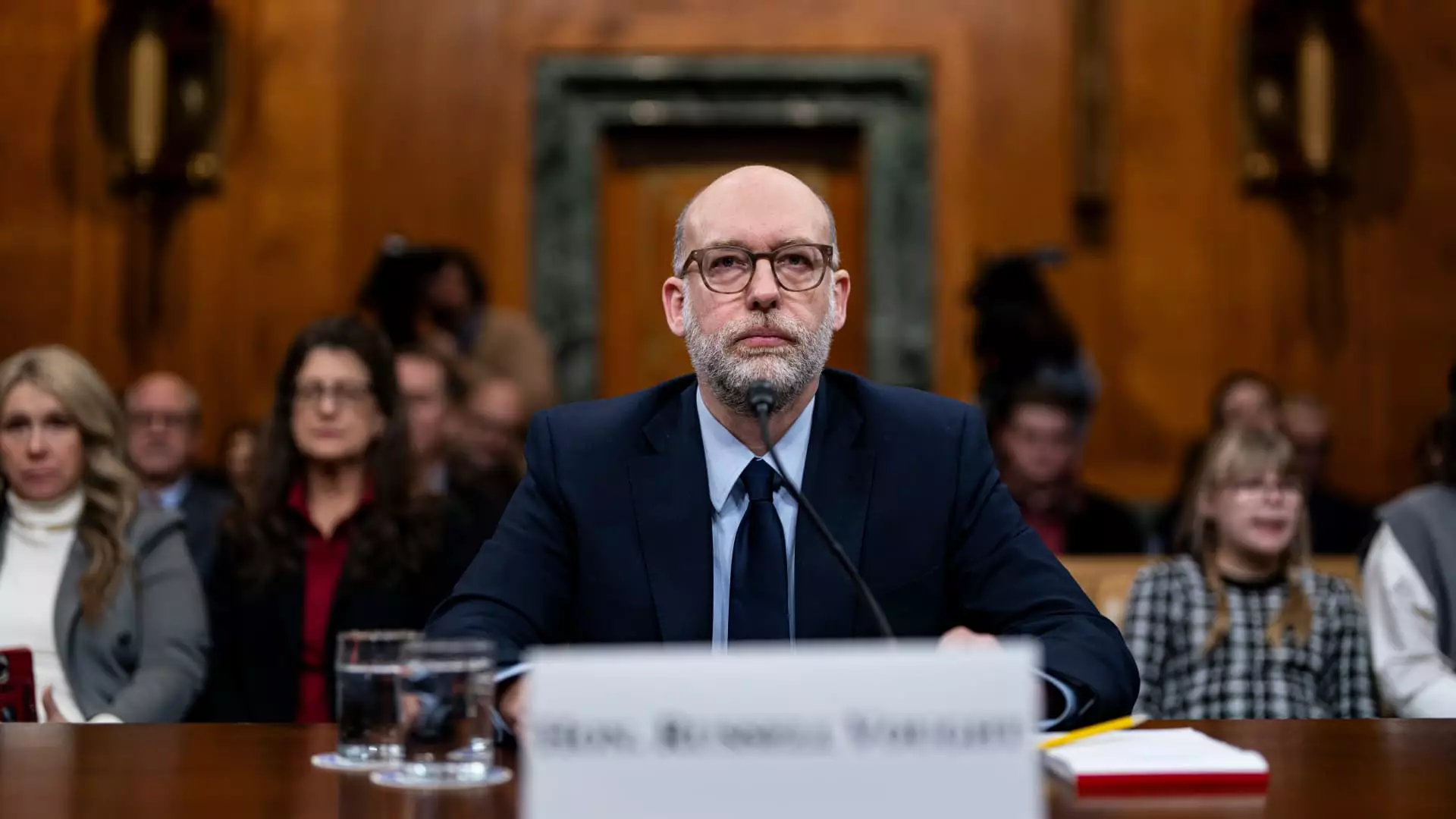The Consumer Financial Protection Bureau (CFPB) is undergoing a dramatic transformation, signaling a notable departure from the policies and practices established under its previous director, Rohit Chopra. Under the new leadership of acting director Russell Vought, the CFPB has recently moved to dismiss several enforcement lawsuits that were initiated by Chopra’s administration, including cases involving major companies such as Capital One and Vanderbilt Mortgage & Finance. This shift has raised eyebrows among both industry insiders and consumer advocacy groups alike, as it hints at a shift in priorities and a strategy that may sacrifice proactive consumer protections for a more laissez-faire approach.
The decision to dismiss these lawsuits, marked by the agency’s formal notice stating “dismisses with prejudice this action against all Defendants,” reflects a significant realignment of the CFPB’s mission. This sudden abandonment of legal recourse raises concerns about the agency’s commitment to consumer protections, especially given that many of the dismissed cases aimed at holding large financial institutions accountable for potentially harmful practices. The timing of these dismissals coincided with Senate hearings where President Trump’s nominee, Jonathan McKernan, faced scrutiny over his potential leadership, further complicating the agency’s image and direction.
Currently, insiders reveal that additional legal cases, especially those with imminent court dates, are likely to face the same fate. This evolution, which has garnered attention from legal experts and consumer advocates, indicates an alarming trend that underscores the vulnerability of consumer rights under inconsistent leadership.
The restructuring at the CFPB extends beyond legal dismissals. Significant workforce reductions, with approximately 200 employees let go, coupled with a shutdown of the agency’s Washington headquarters, signal a comprehensive strategic overhaul. Under Vought’s leadership—and in partnership with initiatives from Elon Musk’s Department of Government Efficiency—the agency appears to be resetting its priorities to eliminate many of the initiatives that have defined the CFPB’s recent past. Employees remaining in the agency are reportedly instructed to halt virtually all ongoing projects, further diminishing the efficacy of the CFPB’s consumer advocacy focus.
The ramifications of these sweeping changes are profound. As the CFPB retracts its commitment to enforcing consumer rights through litigation, the landscape for consumers seeking redress from powerful financial entities becomes precarious. With an apparent pivot to a more lenient regulatory environment, ordinary consumers may find themselves increasingly exposed to predatory practices without the safety net that the CFPB has historically provided. The agency’s recent actions suggest that a regression in consumer protections could be imminent, provoking concern among advocacy groups who champion the rights of the vulnerable in financial transactions.
Ultimately, the CFPB’s current trajectory under new leadership invites scrutiny and debate—not only about the agency’s long-term mission but also about the welfare of American consumers navigating an ever-complex financial system. As the situation develops, stakeholders across the financial spectrum will be watching closely for what signal these changes send about the future of consumer advocacy in the United States.

